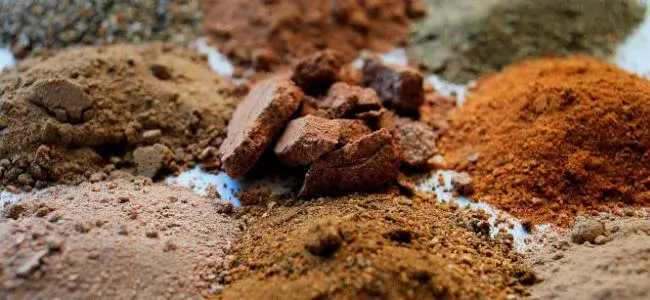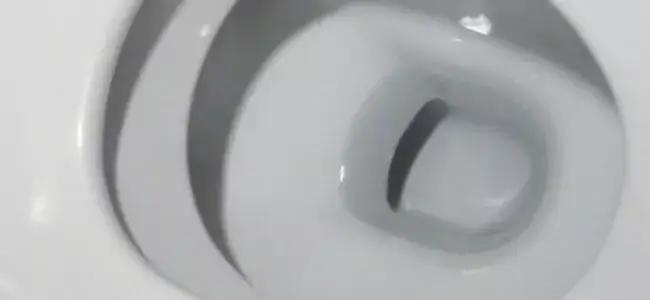Septic tank smell and bad odors – diagnosis and cure

TABLE OF CONTENTS
The septic system owner will occasionally encounter odors. These odors are often as a result of gases that are a by-product of the processes in the septic tank, specifically the digestion of organic waste by anaerobic bacteria. The gases include carbon dioxide, hydrogen sulfide (this is the gas that emits a rotten-egg kind of odor), and methane. These gases are not only toxic and irritating but also potentially explosive. There have been reports in Barcelona and The United States of America of tanks that have exploded due to methane buildup. When in the yard, septic tank gases wouldn’t get to catastrophic concentrations but they are still a nuisance nonetheless. Learn how to get rid of septic tank smell below!
The septic tank odors can be in four primary locations:
- In the house
- Near the septic tank
- In the yard
- Near the drainfield
What causes septic odor inside the house?
Septic tank odors inside the home can be a serious health hazard. If the foul smell from the septic system finds its way into your house, it could mean you have a plumbing problem. For instance, the drying out of a trap in your basement floor drain might result in the gases from the septic tank venting back into the house. A cover that is not sealed properly on the ejector sump pump basket in the basement could also result in septic odors in the home.
The plumbing vent on the roof of your house helps to equalize pressure in your drainpipes as the wastewater flows through. Without this vent, the sinks, toilets, and tubs would gurgle, the traps would dry and the odors would come into the house. A failed plumbing vent will, therefore, result in septic odors in the home. Plumbing vents can get frozen in prolonged cold weather or they could also get blocked by leaves and other debris.
Remedies for septic tank odors in the home
- Periodically fill the floor drain traps with water. If the water levels are ok but the odor is still there, then ask your plumber to check your cleanout access plug to ensure it is not loose. A loose cleanout access plug can also allow gases to escape into your home so fixing it will resolve the problem.
- Frozen pipes will get thawed automatically on a warm day. You can also unfreeze the pipes by using a jetter or some warm water.
- Check to ensure the cover on the ejector sump pump basket is properly sealed. Replace with a new seal if need be.
What causes septic odor near the septic tank?
Some of the factors that might contribute to septic tank odors near the tank are ineffective digestion in the tank, a septic tank that is full and due for pumping, or loose septic tank covers that are causing the leaking of septic odor. Sulfate-reducing bacteria are also associated with septic odors, specifically hydrogen sulfide. Sulfate-reducing bacteria are naturally present in most septic tanks. These bacteria obtain energy through the oxidation of organic compounds and they do this as they reduce sulfate to hydrogen sulfide hence their name, sulfate-reducing bacteria.
Septic odors are normal for any well-functioning septic tank. As the anaerobic bacteria break down the organic waste, carbon dioxide, hydrogen sulfide, and methane gases are released. Hydrogen sulfide has a foul smell that would easily be detected by the human nose. However, we rarely smell it because these gases remain tightly shut within the septic tank. If the septic cover gets dislodged or damaged, the odors will escape and the odors will be smelt near the septic tank. If the drainfield gets clogged, the septic system will fail and that might lead to the emission of septic odors. Although full tanks often have septic odor problems, there are many septic system owners who still battle with these odors even after pumping their tanks. The surest way of dealing with this is using biological additives which include a buffer that can help in organic waste digestion.
Remedies for septic odors near the septic tank
- Ensure the risers and manholes are securely covered
- You can also replace your old lids with the newer plastic lids that have rubber seals that are designed to prevent the septic odor from escaping the tank
- If you have a concrete lid that is leaking odors, you can use weather stripping to create a temporary seal that can help to contain the septic odors in the tank. This seal will need to be replaced after maintenance.
- Pump your tank regularly to ensure it doesn’t get too full.
What causes septic tank smells in the yard?
The presence of septic tank smells in the yard usually means that your plumbing vent is not doing a good job of diffusing the odors. Homes situated in forested areas and valleys are especially susceptible to this problem. As the wind blows over the home, air currents which should ordinarily carry these odors away from the house might instead carry them down into the yard. A failed septic system might also overflow and this could result in odors in the yard.
Remedies for a smelly septic tank in the yard
- If your home is situated in a valley or a forested area, extending the plumbing vent might help to deal with septic smells in the yard.
- Placing carbon filters on top of the vent can also help in the absorption of the foul smells. These filters should be changed annually for best results. However, be sure to use a filter that does not in any way obstruct the flow of air.
What causes septic odors near the drainfield
A strong odor from the drainfield area is an indication of a failing or already failed septic tank or drainfield area. There are many reasons why a septic tank might fail but the commonest is the use of harmful products. Most of the household products that are used in the sinks drains and toilets contain toxic substances which drastically reduce the bacteria population in the septic tank. This means that the organic waste will be forced into the drainfield before it is properly broken down in the septic tank and this is what leads to the failure of most drain fields. This partially broken down organic waste can result in odors in the drainfield.
Remedies for septic odors near the drainfield
- Shock treatment usually repairs most failed drain fields. It entails the introduction of biological additives that are made from enzymes and bacteria and are thus safe for the septic system.
- Even though the biological solution works in most cases, a mechanical solution might be required in some rare situations like if the septic tank was damaged physically. In such a case, you will need to hire a skilled and duly licensed contractor to recommend whether you need to repair or replace the septic tank.
Why does my new septic system smell?
All septic tanks smell. Plumbing vents are usually installed to help eliminate these odors. The vent also helps in preventing the buildup of gases like methane because such a buildup could lead to explosions. Ideally, the smell from the septic tank should only be noticed in passing from the roof but it should fade away with the wind or with the changing weather conditions. Sometimes, the septic systems might not have enough bacteria. Luckily, this can easily be corrected by using biological additives. The following are some of the reasons why a new septic system might smell.
High pH levels – the microbes found in the septic tank needs the PH to be maintained between 6.8 and 7.6. Too much acidity in the tank causes the release of hydrogen sulfide, which has a smell similar to that of rotten eggs.
Full tank – even though it takes years for a tank to be due for a cleaning, some septic system owners can get their new tank full pretty quickly due to poor usage and maintenance. Bacteria need enough time to break down the organic waste but if the tank is too full, wastewater will be forced out of the tank prematurely to create room for more wastewater from the house and this might lead to septic odors.
Cold weather – cold weather can also cause the septic system to produce bad odors. For starters, your septic system could freeze in winter especially if you aren’t using it as much. The vent stack could also get blocked by snow thereby forcing the septic gases back into the house. Downdrafts during cold weather could also result in septic odors when they blow the septic gases back into the house through the air-conditioning unit. Wind velocities are typically less in cold weather and this explains why odors are more common in colder weather as opposed to warm weather.
Are septic fumes harmful?
Your septic tank produces lots of gaseous compounds that are not only unpleasant to breathe but also physiologically damaging. Some of these gases include hydrogen sulfide, methane, ammonia, and carbon dioxide. In addition to the septic gases, industrial solvents can also become airborne and cause some health issues. However, these fumes are only harmful in extremely high concentrations so you should be fine as long as you do not enter the septic tank. The following are some of the problems that might be caused by inhaling septic fumes in high concentrations.
Problems caused by septic fumes
- Hydrogen sulfide, ammonia, methane, and carbon dioxide can be very toxic in high concentrations.
- A combination of methane and carbon dioxide can displace oxygen from the air and this is one of the reasons why you should never enter the septic tank.
- Methane can cause asphyxiation if inhaled in large quantities and this can result in tissue damage.
- Sulfide gas smells like rotten eggs and is, therefore, the most irritating and unpleasant septic gas. Exposure to large quantities can result in eye damage. In extreme cases, it may cause respiratory depression which is a fatal condition.
Problems caused by industrial toxic fumes
Flame retardants, solvents, cleaning products, pesticides, and volatile organic compounds can also result in the formation of toxic gases. For instance, the vapors from bleach can cause irritation in the respiratory system. Surfactants, which are common in cosmetics and detergents, can become airborne and result in irritation of the mucous membrane.
Why does my septic tank smell in winter?
Even though septic odors are normal, the foul smell should either remain in the septic tank or exit through the vent stack on the roof. Unfortunately, winter often interferes with this process. Here are some of the ways cold weather can lead to septic odors.
Vent stack
A vent stack is typically installed to help in the venting of septic odors and gases outside the house. The vent also helps ensure the drains drain properly by creating an air supply in the pipes. During winter, the vent can get blocked by snow or ice and this will force the septic gases back into the house. As the septic gases escape, water vapor from these gases can condense during winter thereby freezing to form ice. You can unclog the vent by pouring hot water into the stack. If this problem persists every winter, you may want to insulate the vent as a preventive measure.
Frozen fields
Blocked drainfieds can result in freezing. When it’s hard for water to percolate, it will overstay in the pipes that can make it freeze in the cold of winter. When this happens, you will get sewage backup as well as the foul septic odors in the house. If snow is melting over the septic tank, then it is very unlikely that the septic tank is frozen and the failure could be a result of a blocked drain field. You should never remove snow or compact it over the drainfield because it serves as natural insulation. Your septic system may also freeze during winter when you stop using it, like say if you go on vacation. In such a case, restarting to use the system will most likely solve the problem.
Wind
Wind can blow septic odors back into your house through a window or the air-con system. This is especially true during winter because the wind of winter usually has very little velocities. Increasing the height of the vent by a couple of inches might help to alleviate this problem.
How do I stop my septic tank from smelling?
Septic fumes are a natural and expected by-product of the process of breaking down organic waste by the anaerobic bacteria. However, these fumes should not escape the septic tank and smelling them in your house or yard is an indicator that something is amiss. Start by checking your manhole to ensure the lid is securely shut. If the lid is shut and you can still smell the septic fumes, check to see if your tank is full. One easy way to determine this is to refer to your pumping schedule. If it’s been more than three years since your tank was pumped, it could be an indicator that your tank is either full or almost getting there. You can also do a scum and sludge level test to determine if your tank needs pumping. Refer to this link for a free DIY scum and sludge level test.
You may also want to check your tank to ensure it is working properly. Most septic systems fail as a result of the homeowners using products that harm the beneficial bacteria in the system. Get our free eBook which delves into the products that a septic system owner should never use by following this link. The toxicity of the products they use affects the pH levels of the septic tank and that gravely impacts on the population of the bacteria in the tank. As a consequence, organic waste is not fully broken down in the tank and hydrogen sulfide is produced. You may want to use dyer tracer tablets to non-intrusively inspect the health of your septic tank. These are tablets that you can flush in your toilets and if your septic system has a problem, the dye will be noticed around the drainfield.
The fail-proof way to deal with septic odors
Bio-Sol’s keepup product controls bad odors in septic tanks by tackling the root cause. If your septic system is not functioning properly, you can add biological additives to rejuvenate the bacteria in the septic system. The bio-sol additives are made from enzymes and bacteria and are therefore very safe to use for your septic system. Adding biological additives will introduce billions of helpful bacteria into the septic system. This will help unclog any blocked drains and thereby restore your septic system to normal working condition. More importantly, it will also help to stop your septic tank from smelling.
OUR LATEST BLOG POSTS

Strange facts about septic systems
If you are a septic system owner, you might have heard all manner of myths. For instance, there is a common myth that throwing a dead cat in the septic tank can help rejuvenate bacteria and thereby make the septic tank more effective. But is this even true? In this article, we will not only answer that […]

Soils types and their impact on septic systems
SOILS TYPES AND THEIR IMPACT ON SEPTIC SYSTEMS However good your septic system is, it depends on the right soil type to complete the process of purifying the wastewater from your home. The soil type in the drainfield area will determine how well the effluent is filtered and if the water that is sent back to the […]

Avoid flushing these if you have a septic tank
Most homeowners wrongfully assume that their toilet can serve as some sort of garbage disposal. As a result, they end up flushing all manner of things in the toilets. Some of the things that are flushed down the toilet are actually innocent mistakes because homeowners think that is the right way to dispose of the products while in other cases, it is just a don’t care attitude. Whichever the case may be, flushing some of these things can result in septic system failure and it could cost you a fortune. We have rounded up some of the commonly-flushed products that you should never flush if you have a septic system.
PERFECT! I WOULD NEED...
Discover which products are the best for your needs!You can contact us at 1-800-378-6132 (toll free) or click on the following button to access our free online evaluation.
GET A QUOTE ONLINELog in to your account
Whoops! It happens sometimes...
CREATE A NEW ACCOUNT
CONGRATS!
You are now registered and ready to go. You can add and change any of your information on your client profile.
Unfortunately, we do not ship our products to the USA at the moment.
But, if you live in the United States and would like to order them, please fill in the form below. You will then be notified as soon as they are available in your country.
Thank you for your understanding!
Malheureusement, nous n’expédions pas nos produits en France pour le moment.
Mais, si vous êtes résident français et aimeriez les commander, remplissez s’il vous plaît le formulaire ci-dessous. Nous pourrons ainsi vous aviser aussitôt qu’ils seront disponibles dans votre pays.
Merci de votre compréhension!

-
30 products to avoid
-
What to replace them with
-
And everything you should know about your septic system
DOWNLOAD THIS FREE EBOOK!
Which email address should we send it to?


